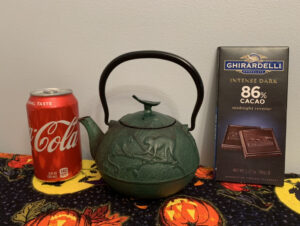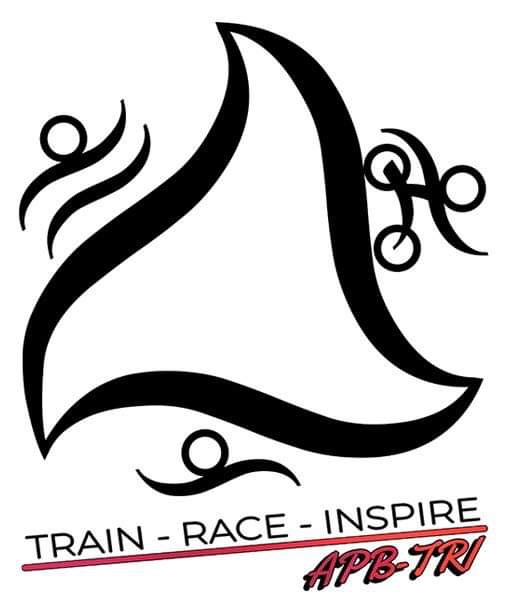What is the impact of caffeine in endurance sports? Does it help or hurt my performance?
I once showed up to a work event and somebody laughed that they didn’t recognize me because I wasn’t holding a cup of tea. So yeah, it’s safe to say I drink a lot of tea. I may have an occasional soda, but I am actually completely immune to appeal of coffee. It just smells really awful to me and I can’t get past that.
But enough on my feelings regarding caffeinated beverages. Let’s talk about their role in endurance sports.
Sources of caffeine

There is a number of caffeine sources out there, some more appealing than others. The most commonly used probably is coffee and everybody thinks about it immediately. Personally, when I am looking for a caffeinated hot beverage, I’m going with tea. Another truly appealing source: chocolate. Just don’t tell that to pregnant women with cravings 😜 (my daughter had something against chocolate when I was pregnant with her, so at least that wasn’t a problem). There are also the cold beverages for those in a mood: sodas and energy drinks. And last and least: caffeine pills.
Is it just me or are all those options usually associated in people’s minds with sugar? I happen not to add any to my tea, but that’s besides the point.
Benefits of caffeine in endurance sports
Ah, the section everybody came here for! Here is a few things that caffeine will do for you in your endurance sports endeavors:
Sparing glycogen
One of the studies I read about showed that taking some caffeine (either as a drink or a pill) up to an hour before you start your exercise may help you turn to fat for energy in the early stages of the race, rather than glycogen. If you look at my post about refueling during a long race or workout, you will realize this is actually really important and will help you have enough fuel for the entire race.
Improved refueling
This one I actually didn’t know when righting about refueling mid-race: apparently having caffeine in your mid-race fuel increased your ability to burn carbs from those drinks by as much as 26%. Ok, that’s huge!
Decreased perception of effort
That’s always good… It has to do with increase in concentration of happy hormones in your brain. I wonder if that’s why people get so addicted to their morning coffee? I guess I have some non-athletic research to do out of my own, nerdy curiosity 🤓!
Delay of fatigue
When you are doing a marathon or a long triathlon, you sure want to delay hitting the wall, or even just feeling tired, don’t you? Apparently caffeine can help. I suspect that at least one of the reasons for this is burning more fat earlier, allowing your already beat-up body access easier to burn fuel for longer.
Recovery
Recovery drink containing caffeine can improve your glycogen absorption into muscle by as much as 66% comparing to decaf. I don’t know what about you, but I’m starting to see a pattern in here: caffeine helps us make better use of carbs in our lives. It may not be always what we want, but good to know.
Side effects
This is a highly individual issue, although there are some common threads. For example, caffeine is a diuretic, which increases likelihood of dehydration. Fear not: it’s low potency, so as long as you don’t overindulge and compensate with proper hydration, you should be ok.
I don’t drink coffee, but I heard that it causes need to use the bathroom. This may be something to think of before drinking one, especially prior to running. If this is an issue for you, I would recommend replacing coffee with tea or caffeine pills. On the other hand, it can help you make sure you empty your bowels before a run and guarantee a race without an ‘incident’. I guess morale of this paragraph is: practice to see how your body reacts and act accordingly.
There is a number of other possible side effects, such as anxiety, headaches or muscle cramping. If you decide to use caffeine to enhance your performance, you should definitely test how your body reacts and repeat after me: nothing new on race day! Chances are you already know how your body feels about a cup of coffee or a soda. Caffeine pills are more of a niche thing, so read up on potency ahead of time.
Building up tolerance vs caffeine in endurance sports
Scientists from University of Sao Paulo tested how bad getting used to your daily cup of joe is in terms of giving you a performance boost. According to their study, people who were off coffee did get the largest boost and it did gradually taper off as athletes got their daily doses of caffeine. There was a big drop at day 11, but even after that, a boost persisted. Initial improvement was up to 5%, so if you’re trying to qualify for Boston or Kona and have just a couple of minutes to shave off, it might be worth it. But also remember: if you are miserable for weeks and can’t train properly, it may do little for you on race day.
So caffeine or no caffeine? That is the question. At the end of the day, like with most endurance sports issues: experiment and see how your body responds.
